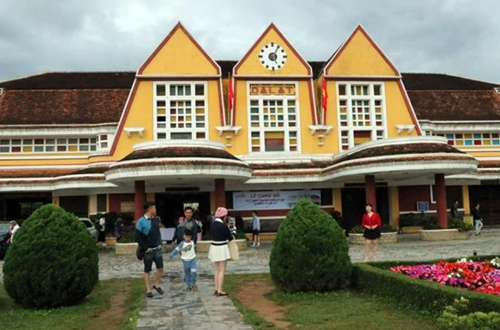Director of the provincial Department of Culture, Sports and Tourism Nguyen Trung Kien said the top-hill station is not only an architectural marvel of the city but also a place that preserves the railway sector’s history.
    |
 |
|
The Da Lat railway station has captured the hearts of visitors. |
Over the past time, night services have been offered on the train route linking the city center and the suburb tourist site of Trai Mat, providing a new experience for passengers to enjoy the night-time beauty of Da Lat, he said, highlighting the railway station has been on the beaten track, with visitors flocking to explore its history.
He went on to say that the recognition aims at promoting local tourism, creating favorable conditions for both domestic and foreign tourism service providers to study cooperation and investment opportunities at the station, while encouraging travel firms to improve the quality of their offerings.
With a view to making the station a destination of culture, art, history and heritage, the Vietnam Railway Corporation has upgraded and developed various transport products on the the Da Lat - Trai Mat route.
During January-June, the nearly century-old station welcomed 275,000 visitors, and gained more than 11.4 billion VND (over 448,000 USD) in revenue.
More rail rides will be arranged in the coming time, giving visitors opportunities to enjoy the city’s sunrise and serene landscapes.
The station’s new entrance fee will be introduced from October 1 this year.
The station, designed by two French architects, Moncet and Revéron, and built between 1932 and 1938, has been seen as the most gorgeous ancient one in Vietnam and the whole Indochina. Its façade represents the three peaks of Langbiang Mountain and stilt houses in the Central Highlands.
It was a stop on the 84km Phan Rang - Da Lat railway, a route built by the French to connect the south central province of Ninh Thuan with the Central Highlands.
With its special architectural and cultural values, the Da Lat railway station was recognized as a national historic relic site in 2001.
Source: VNA